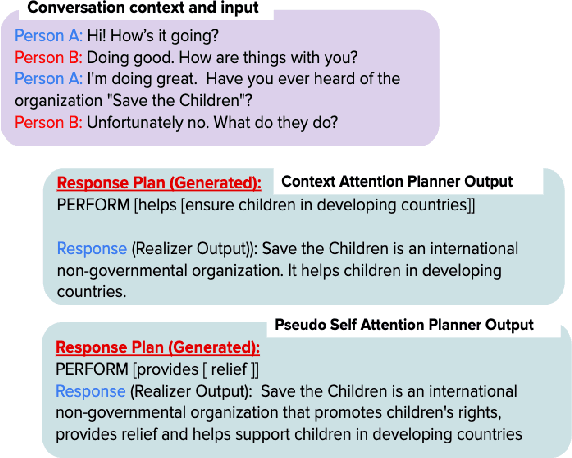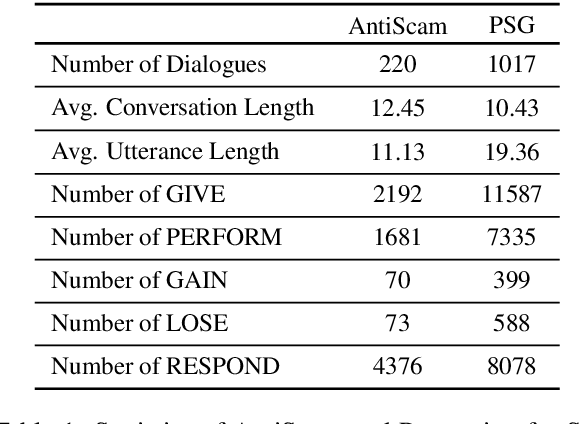Learning to Plan and Realize Separately for Open-Ended Dialogue Systems
Paper and Code
Oct 04, 2020



Achieving true human-like ability to conduct a conversation remains an elusive goal for open-ended dialogue systems. We posit this is because extant approaches towards natural language generation (NLG) are typically construed as end-to-end architectures that do not adequately model human generation processes. To investigate, we decouple generation into two separate phases: planning and realization. In the planning phase, we train two planners to generate plans for response utterances. The realization phase uses response plans to produce an appropriate response. Through rigorous evaluations, both automated and human, we demonstrate that decoupling the process into planning and realization performs better than an end-to-end approach.
* Accepted at EMNLP 2020 (Findings)
 Add to Chrome
Add to Chrome Add to Firefox
Add to Firefox Add to Edge
Add to Edge